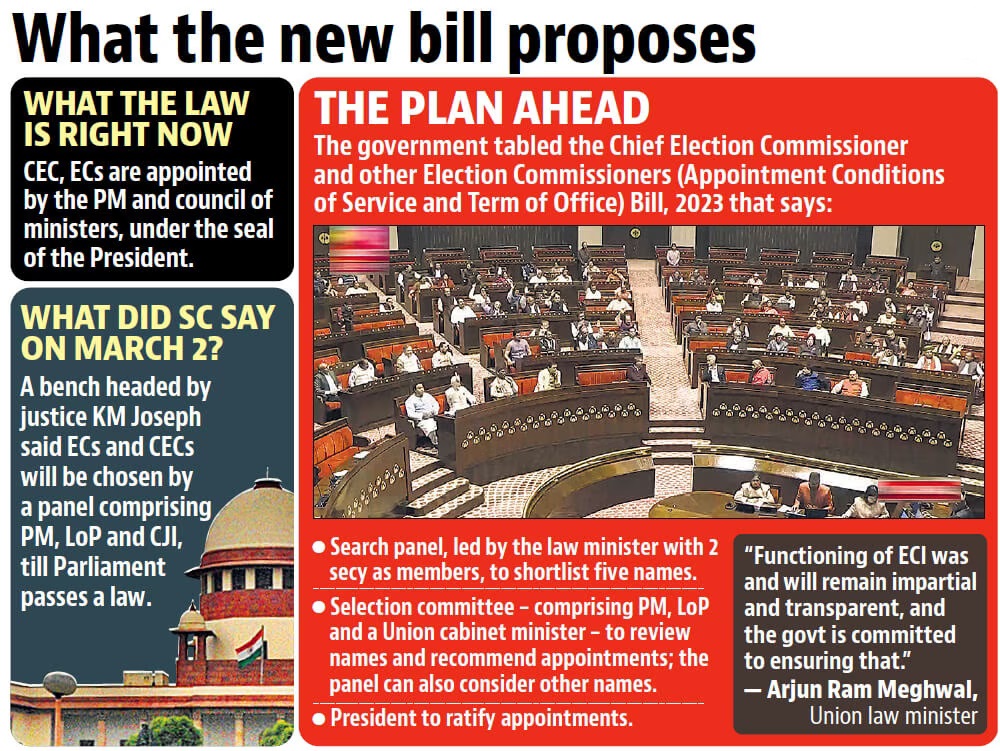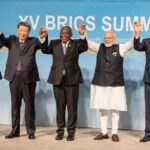By Dr. Gyan Pathak
With Union Government of India making the appointments of the Chief Election Commissioner of India, and an Election Commissioner under the new law of 2023, while the law itself is pending adjudication in the Supreme Court of India, people’s hopes and fears about independence of Election Commission of India running high.
The Chief Election Commissioner and other Election Commissioners (Appointment, Conditions of Service, and Term of Office) Act of 2023 was challenged in the Supreme Court of India on the ground that it goes against the spirit of the 2022 Constitution Bench verdict which emphasized that the appointment process should be insulated from executive interference so that its functioning will be truly independent.
The Constitution Bench in its verdict had put in place a committee comprising Prime Minister, the Leader of Opposition in Lok Sabha, and Chief Justice of India to secure the appointment process democratic in true sense of the term. Nevertheless, PM Modi dispensation came up with the Act of 2023, which not only kept Chief Justice of India out of the appointment process, but also made a provision that Prime Minister and his appointee Union Minister, and the Leader of Opposition would be the members of the appointing committee. The law kept majority of the executive to control the very appointment process to have executive’s wish implemented.
Supreme Court of India did not deliver judgement in time, and under the same controversial law Modi government had appointed the new CEC and an EC on Monday night, February 17, after the meeting of three members – Prime Minister Narendra Modi, Union Minister of Home Amit Shah, and Leader of Opposition in the Lok Sabha Rahul Gandhi. Rahul Gandhi had wanted that the appointment should postponed since the Supreme Court of India would be hearing the petitions challenging the validity of the new law two days later on Wednesday, February 19, 2025.
It should be noted that the Supreme Court had earlier agreed to hear the matter before the appointment of the new CEC, since the incumbent CEC Rajiv Kumar was to retire, and the Case was posted to February 12. However, the case was not listed on February 12 and got posted to February 19.
A day after the appointment of new CEC Gyanesh Kumar and an EC Vivek Joshi, the petitioners who have challenged the law on the appointment of Election Commissioners requested the Supreme Court on February 18 to hear the matter on top priority on February 19 itself, fearing that the matter may not be heard at all since it was listed as no. 41 item. The request was declined, but Justice Surya Kant who was presiding over the bench, asked the petitioner’s advocate Prashant Bhushan to make a mention on February 19.
Today, when Prashant Bhushan representing the NGO Association for Democratic Reforms mentioned the case before the bench, Solicitor General (SG) Tushar Mehta requested an adjournment, citing his appearance before a Constitution Bench on another matter. Opposing the request, Mr. Bhushan argued, “Every matter cannot be adjourned simply because the Solicitor General is engaged elsewhere… they have 17 law officers.” However, Addressing SG Tushar Mehta, Justice Surya Kant remarked, “If you become available, let us know. Otherwise, we will accommodate.” Later, The Supreme Court postponed the hearing to March 19, owing to non-availability of dates in between.
The Leader of the Opposition (LoP) in the Lok Sabha Rahul Gandhi on Tuesday had asserted that the midnight appointments of CEC and EC was “discourteous and disrespectful” when the process of appointment and the composition of the selection committee itself was being challenged before the Supreme Court.
Now, when the CEC Gyanesh Kumar and EC Vivek Joshi had already joined, people and political parties of the country are looking towards them with much hope and fear regarding independence of the Election Commission of India, irrespective of the final decision of the Supreme Court of India on the validity of the laws itself under which they have been appointed.
Since the term of EC’s under the new law is six year or 65 years of age, Gyanesh Kumar will be retiring in January 2029, just before Lok Sabha election of 2029. Thereafter, Vivek Joshi may become CEC, under whose control Lok Sabha election 2029 will be fought. Under the new law, only CEC has constitutional protection against removal, and ECs do not have any such protection. Their terms will depend on the wish of the CEC and the Government of India.
Gyanesh Kumar had retired as Secretary of the Ministry of Cooperation in January, and was secretary in the Amit Shah led ministry from May 2022. From 2016 to 2018 he was in joint secretary in Union Ministry of Home, and from 2018 to April 2021 he was additional secretary, during which he headed the desk during abrogation of Article 370 in Kashmir in August 2019. No doubt he has been a trusted officer for Modi-Shah duo. It is precisely due to this reason people have both hope and fear from him. Only time will tell if he holds the flag of independence of ECI or follow the dictates of their appointers.
The level of hope and fear on Vivek Joshi is much higher that on Gyanesh Kumar since, Lok Sabha Election 2019 would most probably be held under his tenure. The 1989 batch Haryana cadre IAS officer, Vivek Joshi has been much loved by the Union Government is well known, especially after he was made chief secretary in November 2024 despite senior officers from the 1990 batch were waiting for their turn. There were other occasions in the past also when he was preferred by the BJP led governments both at the Centre and states like Uttarakhand.
It is in this backdrop, pro-BJP people and politicians hope much from both the newly appointed CEC and EC, while they are feared by anti-BJP people and politicians. In this situation both the officers will have greater responsibility to work without malice or favour. They must uphold the flag of independence of the Election Commission of India for free and fair election in the country.
In the meantime, all eyes are also on the Supreme Court of India, where the new law is pending for adjudication. Supreme Court is expected not to delay the decision for a very long time. (IPA Service)




 US Is Seeking To End Ukraine War For Its Own Eco-Diplomatic Opportunities
US Is Seeking To End Ukraine War For Its Own Eco-Diplomatic Opportunities 